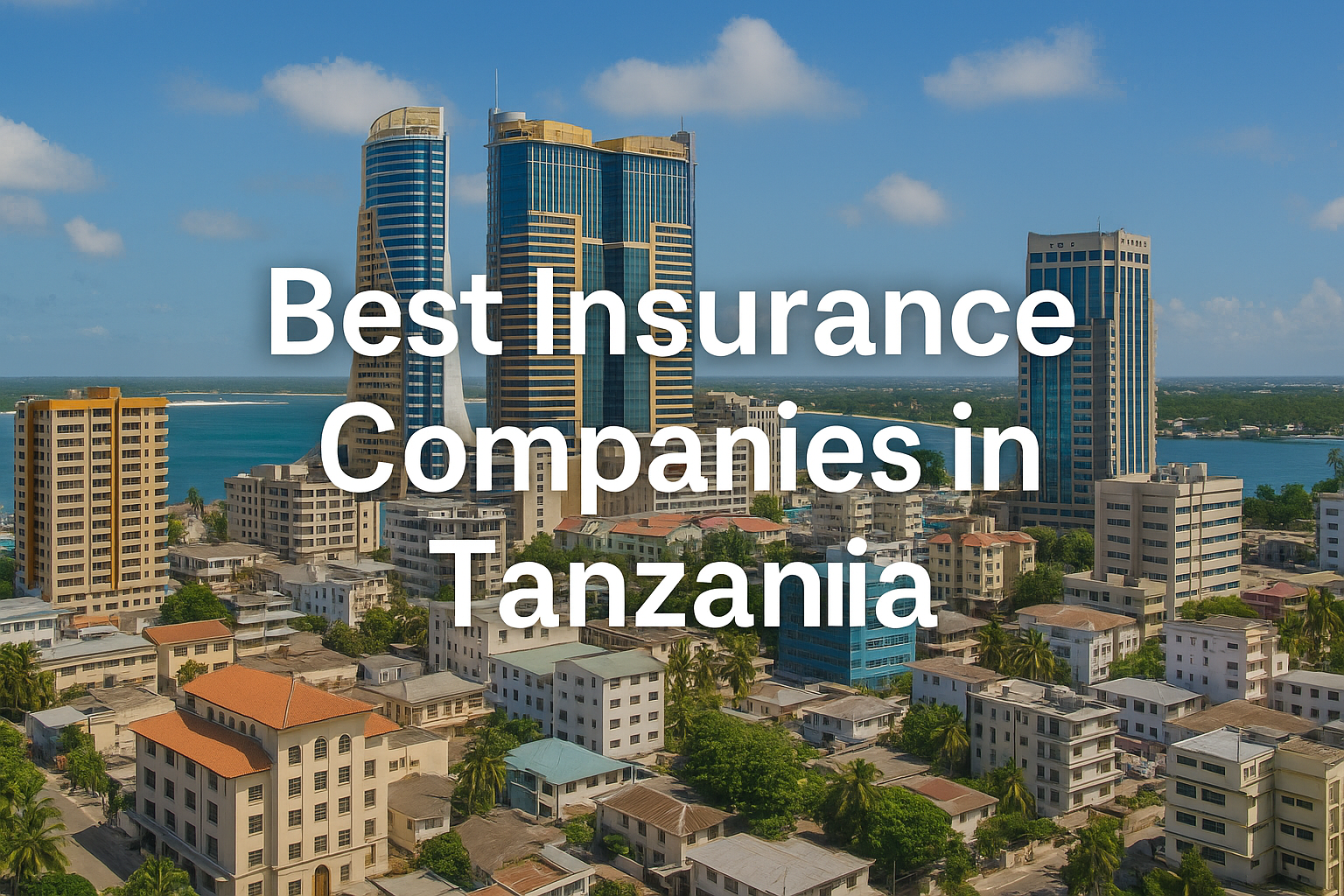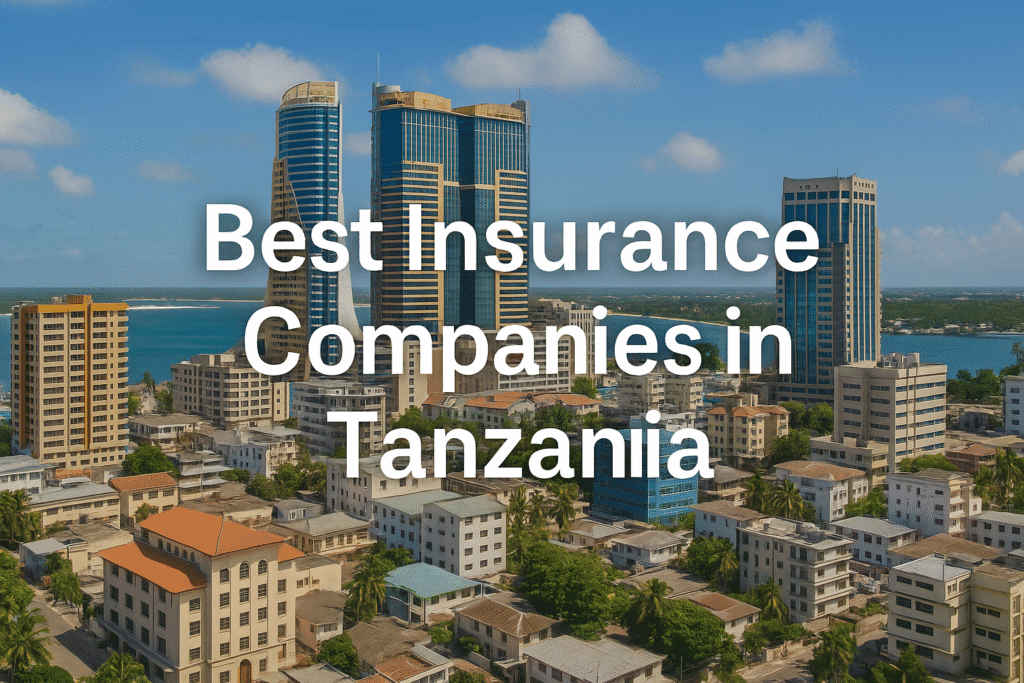Address
Arusha Njiro
Work Hours
80 Hours A week
Address
Arusha Njiro
Work Hours
80 Hours A week


Mobile technology is profoundly reshaping the insurance sector in Tanzania, driving increased accessibility, affordability, and convenience for a broader segment of the population. With a high mobile penetration rate, mobile phones have become a powerful tool for delivering insurance products and services, particularly in remote and underserved areas. This digital transformation is not only enhancing the customer experience but also enabling insurance companies to streamline operations and reduce costs. The integration of mobile money platforms, such as Vodacom’s M-Pesa, with insurance services has been a key driver of this revolution, allowing for seamless premium payments and claims processing. This section explores the multifaceted impact of mobile technology on the Tanzanian insurance industry, focusing on how it is breaking down traditional barriers and fostering greater financial inclusion. The development of insurtech solutions, including digital marketplaces and platforms designed for mobile use, is further accelerating this trend, making insurance more user-friendly and responsive to the needs of Tanzanians.
The advent of mobile insurance, particularly leveraging platforms like Vodacom’s M-Pesa, has been a significant game-changer in the Tanzanian insurance landscape. M-Pesa, a widely adopted mobile money service, has facilitated a more direct and efficient way for insurance companies to reach customers, especially those in areas with limited access to traditional banking or physical insurance branches. This has led to the democratization of insurance, making it possible for a larger portion of the population to afford and manage insurance policies. The convenience of purchasing insurance directly through a mobile phone, often with just a few simple steps via USSD codes or mobile apps, has significantly lowered the barrier to entry for many Tanzanians . For instance, Heritage Insurance allows customers to buy insurance coverage directly from the Vodacom M-Pesa platform by dialing *150*00#, selecting “Financial Services,” then “Vodabima,” and finally choosing “Heritage Insurance” to complete the process . This ease of access is crucial in a country where a significant part of the population is unbanked or underbanked but has access to a mobile phone.
The impact of mobile technology extends beyond just premium payments. It streamlines the entire insurance value chain, from policy issuance to claims management. The lower administrative costs associated with mobile-based transactions allow insurance providers to offer more competitive premiums, thereby enhancing affordability . Sanlam Life Insurance, for example, promotes “Bima Rahisi Kupitia M-Pesa” (Affordable Insurance via M-Pesa), highlighting how mobile technology is being used to offer cost-effective life insurance solutions . Furthermore, mobile platforms enable quicker transactions and real-time communication between insurers and policyholders, leading to improved customer satisfaction. The ability to receive policy documents digitally, make premium payments on the go, and even initiate claims through mobile channels significantly enhances the overall customer experience. This shift towards mobile-centric insurance solutions is not just a trend but a fundamental change in how insurance services are delivered and consumed in Tanzania, fostering greater financial resilience and protection for individuals and businesses alike.
Heritage Insurance Company Tanzania Limited has been a notable proponent of leveraging mobile technology to enhance its service delivery and reach. One of their key initiatives is the HeriBima platform, a dedicated digital solution designed to boost the productivity of insurance intermediaries and sales force executives. This platform aligns with the industry’s broader digital transformation objectives by offering features such as the initiation of motor business policies, facilitation of real-time mobile payments, simplified reconciliation processes, and other functionalities aimed at streamlining operations . By empowering intermediaries with digital tools, HeriBima helps to improve efficiency and responsiveness in serving customers. This initiative reflects a commitment to embracing technology to meet the evolving expectations of clients and agents in the Tanzanian market. The platform’s focus on motor business, a significant segment of general insurance, indicates a strategic approach to digitizing high-volume transactions.
In addition to its proprietary HeriBima platform, Heritage Insurance also utilizes broader digital marketplaces to extend its reach. The company offers its insurance solutions via the BimaSokoni platform, an online insurance aggregator in Tanzania . BimaSokoni allows consumers to compare, select, and buy insurance policies from various providers, all from the convenience of their mobile devices or computers . By partnering with such platforms, Heritage Insurance ensures that its products are accessible to a wider audience who prefer to research and purchase insurance online. BimaSokoni’s mission is to transform the insurance industry into a digital space, providing a marketplace for insurers and brokers to promote and sell their products efficiently . Heritage’s presence on BimaSokoni, coupled with its direct mobile sales through M-Pesa, demonstrates a multi-channel digital strategy aimed at maximizing accessibility and convenience for Tanzanian consumers seeking insurance coverage. These initiatives collectively contribute to making insurance more transparent, competitive, and user-friendly in the digital age.
The integration of mobile technology into the insurance sector in Tanzania offers a multitude of advantages for both consumers and providers, fundamentally changing how insurance is accessed and managed. One of the most significant benefits is increased accessibility. Mobile platforms can reach remote and rural areas where traditional brick-and-mortar insurance offices are scarce or non-existent. This expanded reach is crucial for promoting financial inclusion and ensuring that a larger portion of the Tanzanian population can benefit from insurance protection . For individuals in these underserved regions, mobile phones provide a direct and convenient channel to learn about, purchase, and manage insurance policies without the need for extensive travel or complicated paperwork. This democratization of access is a key driver in increasing insurance penetration across the country.
Another major advantage is lower operational costs for insurance companies. By digitizing processes such as policy issuance, premium collection, and claims notification, insurers can significantly reduce administrative overheads associated with manual paperwork, physical infrastructure, and in-person interactions. These cost savings can then be passed on to consumers in the form of more affordable premiums, making insurance products more attractive and attainable for a wider range of income levels . Furthermore, mobile-enabled insurance facilitates quicker and more efficient transactions. Premium payments can be made instantly via mobile money, policy documents can be delivered electronically, and claims processes can be initiated and tracked through mobile apps or USSD codes. This speed and efficiency enhance customer satisfaction and improve the overall experience of interacting with an insurance provider. The ability to receive instant confirmations and updates provides policyholders with greater transparency and peace of mind.
The proliferation of mobile technology in Tanzania’s insurance sector is having a tangible impact on the affordability of insurance products. By leveraging mobile platforms for distribution and administration, insurance providers can significantly reduce their operational expenditures. These savings are often translated into lower premium rates for policyholders, making essential insurance coverage, such as health, life, and motor insurance, more financially accessible to a larger segment of the Tanzanian population . For example, the “Bima Rahisi Kupitia M-Pesa” (Affordable Insurance via M-Pesa) initiatives by companies like Sanlam highlight this trend, offering life insurance products that cater to individuals seeking cost-effective solutions . The ability to offer micro-insurance products or short-term, pay-as-you-go policies through mobile channels further enhances affordability, allowing customers to purchase coverage tailored to their immediate needs and budget constraints without committing to long-term, expensive policies.
Looking ahead, the future of mobile-enabled insurance in Tanzania appears promising, but it is not without challenges. Continued investment in digital infrastructure, including expanding mobile network coverage and improving internet accessibility, will be crucial for sustaining this growth. There is also a need for ongoing consumer education to increase awareness about the benefits of insurance and to improve mobile and digital literacy, ensuring that more Tanzanians can confidently use these new platforms. Collaboration between insurance companies, mobile network operators, fintech firms, and regulatory bodies like the Tanzania Insurance Regulatory Authority (TIRA) will be essential to address these challenges and foster a supportive ecosystem for innovation. The development of more sophisticated insurtech solutions, such as usage-based insurance (UBI) for motor vehicles or AI-powered claims processing, could further revolutionize the industry. As these technologies mature and adoption increases, mobile phones are poised to remain at the forefront of expanding insurance access and driving financial inclusion in Tanzania, ultimately contributing to a more resilient and protected society.
Navigating the insurance landscape in Tanzania requires an understanding that the needs and preferences of different groups—expats, local Tanzanians, and businesses—can vary significantly. Factors such as residency status, duration of stay, financial capacity, risk exposure, and specific legal or contractual obligations play a crucial role in determining the most suitable insurance solutions. Expats, for instance, often require international coverage and portability, while local residents may prioritize affordability and plans that complement existing public health schemes. Businesses, on the other hand, need comprehensive coverage to protect against a wide array of operational risks. This section provides a comparative analysis of insurance solutions tailored for these distinct audiences in Tanzania, highlighting key considerations and common product choices for health, car, life, and business insurance. The aim is to offer a clear framework for individuals and entities to identify and secure appropriate insurance coverage in a dynamic market.